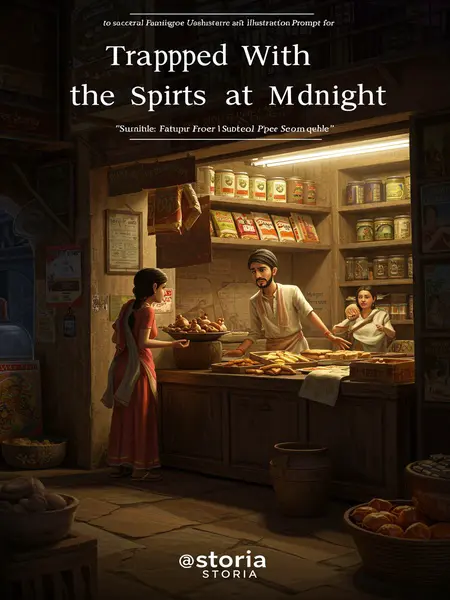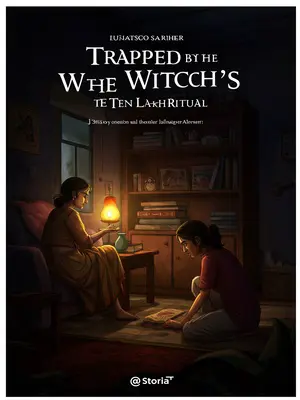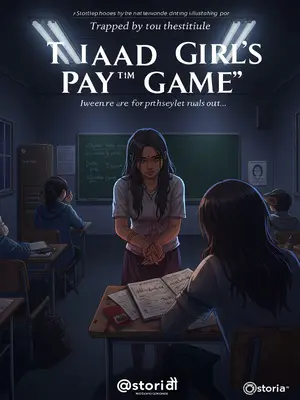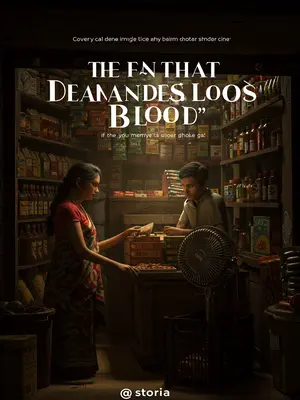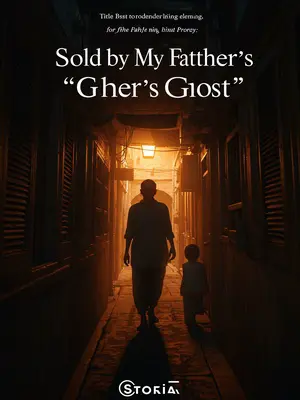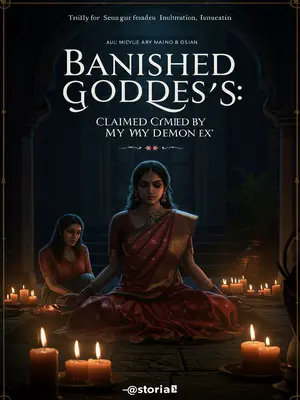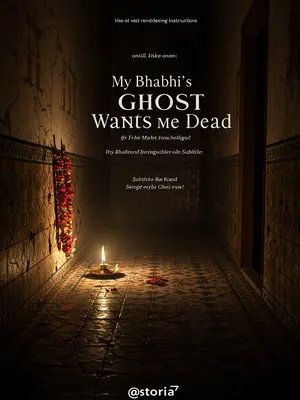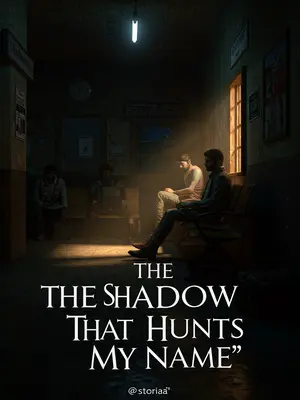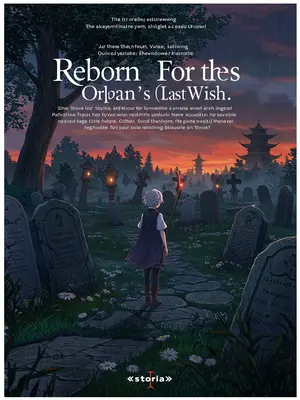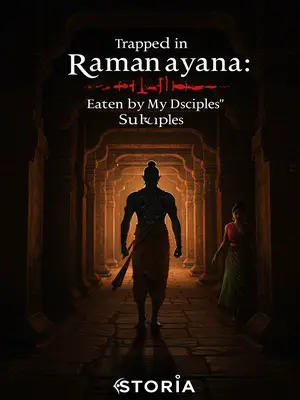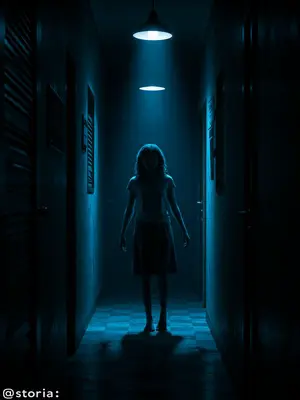Chapter 2: The Muddy Stranger
By ten o'clock, Dada was about to pull down the shutter when a man limped in. His clothes were caked with yellow mud, as if he’d crawled straight out of a nala.
The door’s creak startled us all. The man’s arrival felt wrong, as if the night wind itself had pushed him in. The sharp, sour smell of wet earth clung to him, mixing with coriander and incense from the evening aarti. Dada’s hands paused on the shutter handle, the city’s noise suddenly distant.
Dada tried to sound cheerful: "Beta, sorry, the shop is closing."
He dabbed his forehead with a gamcha, his eyes lingering on the muddy footprints marking the mosaic floor.
The man blinked, confused. "Uncle, why are you closing so early?"
His voice was rough, and he shuffled awkwardly, dried mud cracking and falling away from his ankles. The tube light above flickered, as if it too was uneasy.
Dada replied, "A beggar came this morning, said at midnight a vengeful spirit would come to claim a life. He told me to close up early."
He forced a laugh, drumming nervous fingers on the wooden counter. I saw his eyes dart between the clock and the stranger’s face.
The man laughed too loudly, glancing around at shelves packed with jars of orange candies, packets of Kurkure, and a faded Amitabh Bachchan poster. The ceiling fan’s slow churn barely cut the tension.
Dada shrugged, "Kya karein, I get scared sometimes."
He gripped the counter, anchoring himself in routine.
The man dusted off his shirt. "Uncle, I’m from out of town—came for Pitru Paksha, to visit my wife’s samadhi. I haven’t eaten all day and have to drive back tonight. It’s only 10:20. Could you make some maggi?"
His tiredness was plain; even the tube light seemed to bow to the weight of his words. The name of Pitru Paksha made the air in the shop heavier, charged with the memory of ancestors.
He had a simple, square face, honest-seeming, yet something about him prickled my skin. Dada frowned, glancing at Dadi, whose silent approval he always needed.
Dadi eyed him sharply, prayer beads in hand: "Beta, where’s your wife? Why didn’t she come with you?"
He answered quietly, not meeting her gaze, "She’s up on the hill, wanted a moment with her father. She’ll join me soon."
He smiled oddly. "Maybe you’ll even know her, aunty."
Outside, the rickshaw bell rang twice, echoing through the empty street. Dadi nodded, recalling how girls from our mohalla had started marrying outside. Old rules gone, but old memories remained.
Dada relented. "Maggi toh ban hi jayegi."
He headed to the back, the hiss of the gas stove oddly comforting. The familiar aroma of masala noodles soon filled the shop, mixing with incense and the monsoon’s earthy scent.
"Uncle, how much for maggi?" the man asked, holding out a crumpled note.
"Twenty rupees," Dada replied, checking the calendar—some habits never died.
"Make two bowls, please. My wife will be here soon."
He looked at the door as if expecting something more than a person to appear. Dada nodded, and soon two steaming bowls were ready. The man ate greedily, slurping with both hands shaking.
Dadi kept glancing at the clock. She leaned close to Dada, voice urgent: "Dus bajke paintees ho gaye. Close up jaldi."
Dada wiped his hands, peeking at the window where rain threatened. His promise to Dadi was quiet but firm.
